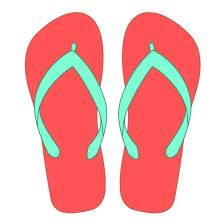The work begins to pile up, first assignment done, second assignment done, only three more assignments left to complete. Sitting at your desk, in a platonic state, paralyzed by the thoughts running through your mind: test in world tomorrow, quiz in math, English essay due… The clock strikes midnight and you’ve chipped away at about 40 percent of your work. Suddenly you stop and think, is this workload ever going to end?
Junior year has a reputation for being demanding on teenagers and pushing them to the point where their minds feel like shutting down. The importance placed on junior year is what adds to the stress and so many students go in blind, not knowing how to handle the pressure. In freshman and sophomore year, you are introduced to a more manageable workload, but that all changes junior year.
The workload increases, the pressure increases, the stress increases and your time to be a normal teenager decreases. You are tasked with juggling thirty million things at once while maintaining good grades, racking up ample extracurriculars and achieving good SAT or ACT scores. It can be difficult to keep everything in line, but not impossible with the right guidance, such as this advice from this year’s current junior class.
Step one: SAT and ACT. During your junior year, on top of the heavy course load, you are faced with the daunting task of standardized tests. The SAT or ACT can be minimally stressful if you plan them accordingly. Go into the school year with a plan for when you are going to take them and a schedule for how you are going to prepare. When the school year starts, you hit the ground running, and it can be very difficult to juggle everything. Remember not to stress about the exam because you have the opportunity to take it multiple times. Just make a plan and try your best to stay on top of your prep, and if it doesn’t go the way you expected, that is okay.
“Study as much as you can for your first SAT or ACT. It is a huge weight off your shoulders to only have to do it once,” junior Gabrielle Vogel commented.
Step two: Extracurriculars. It is important to keep in mind that colleges don’t only look at academic performance, but also the non-academic activities you did in high school. With only a limited amount of time in a day, sometimes you have to sacrifice extracurriculars to go home and study. Then there are the ones who stick to these activities but have no time to do homework plus test prep plus everything else. It is important for you to make time to do these fun activities, because in the long run they will help to relieve stress. It is crazy to think that the little time you have should be filled with non-academic activities, but you have to keep in mind that this is a tough year and you should have fun and make some amazing memories.
“I wish I didn’t quit playing lacrosse my junior year,” junior Philip Lawson commented.
Step three: Looking Ahead to the Future. Up until now, it probably has not really crossed your mind that you will be starting college in a couple of years. Well, junior year has this nice way of bringing you down to reality and hitting you with everything at once. Prior to junior year, it is important to plan out a schedule that is manageable for yourself. Try not to overload your schedule with too many AP and honors classes; try to have a good balance along with making sure you are completing all required classes. For many people, this is their first year taking more than one AP class, so it important to set yourself up for success. Another important thing that juniors often overlook is college recommendations. Establish good relationships with teachers, so when you ask them for a recommendation at the end of the year, they portray you in a positive light. On top of that, start to consider where you might want to go to school. Start visiting colleges or have them in the back of your mind, so you do not have to rush and make any rash decisions once application time rolls around.
“Go in to see your teacher for help. They get paid to help students, so you should utilize them to ensure that you’re setting yourself up for success. It also shows them that you care and you can develop strong relations to get good college recommendation,” junior Jake Steinberg commented.
Junior year comes and goes in the blink of an eye. It’s a weird feeling, to be honest, that during the year you feel trapped and you believe it is never going to end, but then when it does you ask yourself where the time went. It is important to work hard and give it your undivided attention, but you also need to stop and take time to be a teenager. Many juniors regret not taking the time to slow down and actually enjoy the moments. You’re a teenager after all. Don’t be too eager to grow up.















